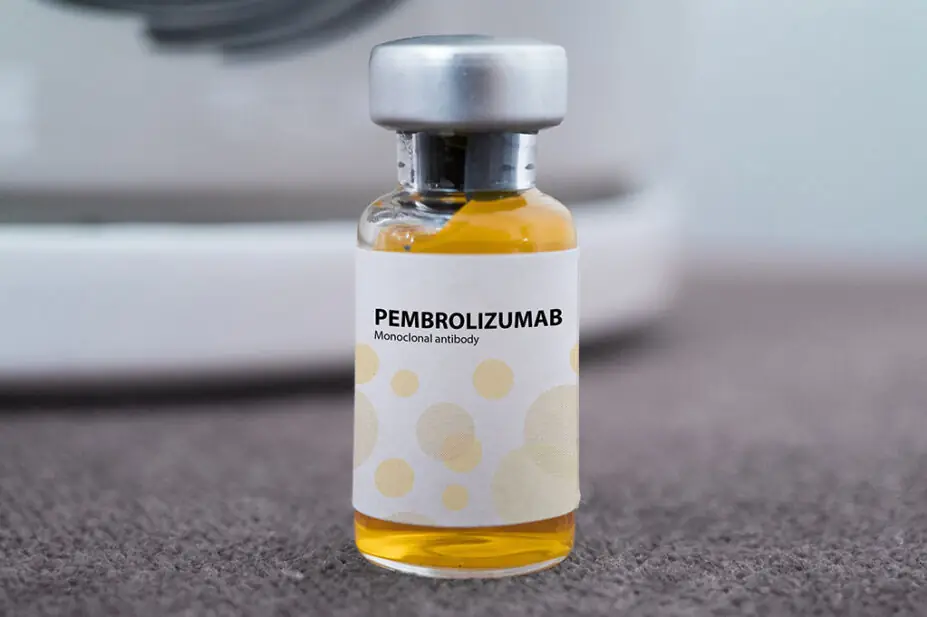
Immunotherapy treatment pembrolizumab (Keytruda; Merck Sharp & Dohme) helps patients with head and neck cancers to live extra years disease free when compared with standard treatment, according to the results of a study.
The phase III trial’s findings, which were presented at the American Society of Clinical Oncology annual meeting on 30 May 2025, demonstrated that pembrolizumab prevented cancer getting worse or coming back for some patients for an average of 60 months, or five years, when added to standard of care (SOC), compared with 30 months, or 2.5 years, for patients receiving SOC only.
It also found that, after three years, patients given pembrolizumab had a 10% reduced risk of their cancer returning elsewhere in the body.
The Keynote-689 trial’s researchers analysed data from 714 participants with newly-diagnosed locally advanced head and neck cancers.
The study was conducted at 192 sites in 24 countries around the world, including the UK.
Of the 714 participants, 363 patients (51%) were assigned to receive pembrolizumab, followed by SOC, while 351 patients (49%) received the current SOC only, which is surgery to remove the tumour, followed by radiotherapy — with or without chemotherapy.
Results of the study show that in patients who received pembrolizumab plus SOC, progression or recurrence of the disease at 36 months was 13.4%, compared with 14.3% in patients who received SOC only.
The median time that patients were disease free was 51.8 months with pembrolizumab plus SOC, compared with 35.7 months with SOC only (hazard ratio (HR) 0.71, 95% confidence interval (CI) 0.56–0.90), the study results revealed.
The study also found that second head and neck or other cancers occurred in nine patients (2.5%) assigned to receive pembrolizumab plus SOC, compared with 18 patients (5.1%) who received SOC only.
Incidence of treatment-related adverse events was similar with pembrolizumab plus SOC and SOC only at 81.4% and 81.9%, respectively, the study results show.
Pembrolizumab works by targeting and blocking PD-1 protein cells on immune cells called T cells.
Cancer cells can bind to PD-1, causing the immune system to attack itself, and blocking PD-1 cells can prevent this from happening.
The immunotherapy is already approved for use in the UK on its own or in combination with chemotherapy in head and neck cancer that has returned or spread around the body.
Previous trials of the drug in patients who had received chemotherapy or radiotherapy without surgery had not been as successful, the study researchers said.
However, they believe pembrolizumab has been successful in the current trial owing to its use prior to surgery and as part of postoperative treatment.
“The drug primes the immune system to attack the cancer before it is surgically removed, and the immune system is then ready to continue fighting it all over the body when it is targeted with post-surgery chemotherapy or radiotherapy,” they added.
Kevin Harrington, professor of biological cancer therapies at the Institute of Cancer Research, London, and consultant oncologist at The Royal Marsden NHS Foundation Trust, who led a research team as part of the study, said: “For patients with newly diagnosed, locally advanced head and neck cancer, treatments haven’t changed in over two decades.
“Immunotherapy has been amazingly beneficial for patients with cancer that has come back or spread around the body but, until now, it hasn’t been as successful for those presenting for the first time with disease which has spread to nearby areas.
“The results of this trial show that pembrolizumab dramatically increases the duration of disease remission — for years longer than the current standard treatments. It works particularly well for those with high levels of immune markers, but it’s really exciting to see that the treatment improves outcomes for all head and neck cancer patients, regardless of these levels.”
Commenting on the study, Tamara Kahn, chief executive officer at charity Oracle Head & Neck Cancer UK, said: “We welcome the promising results from the Keynote-689 trial, which represent a significant breakthrough in the treatment of head and neck cancers. For too long, patients with newly diagnosed, locally advanced head and neck cancer have faced limited treatment innovation and high rates of disease recurrence or progression. These findings offer new hope for improving both survival and quality of life.
“The demonstrated benefit of pembrolizumab — doubling the time patients remain disease free, compared to current SOC — is particularly encouraging. We are especially pleased to see an effective treatment approach that not only extends remission but may reduce the likelihood of metastasis.”
A spokesperson for Head & Neck Cancer UK added: “We are delighted that the study is showing positive results.
“Head and neck cancers are notoriously difficult to deal with due to the complexity and variety of tumours, which are often presented at a late stage, resulting in life changing outcomes for patients.”


